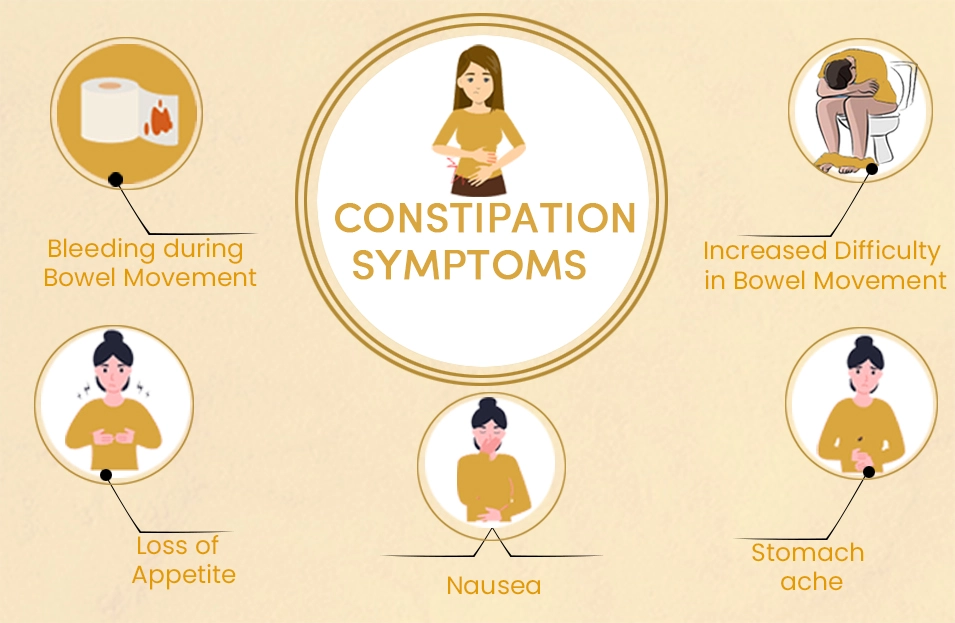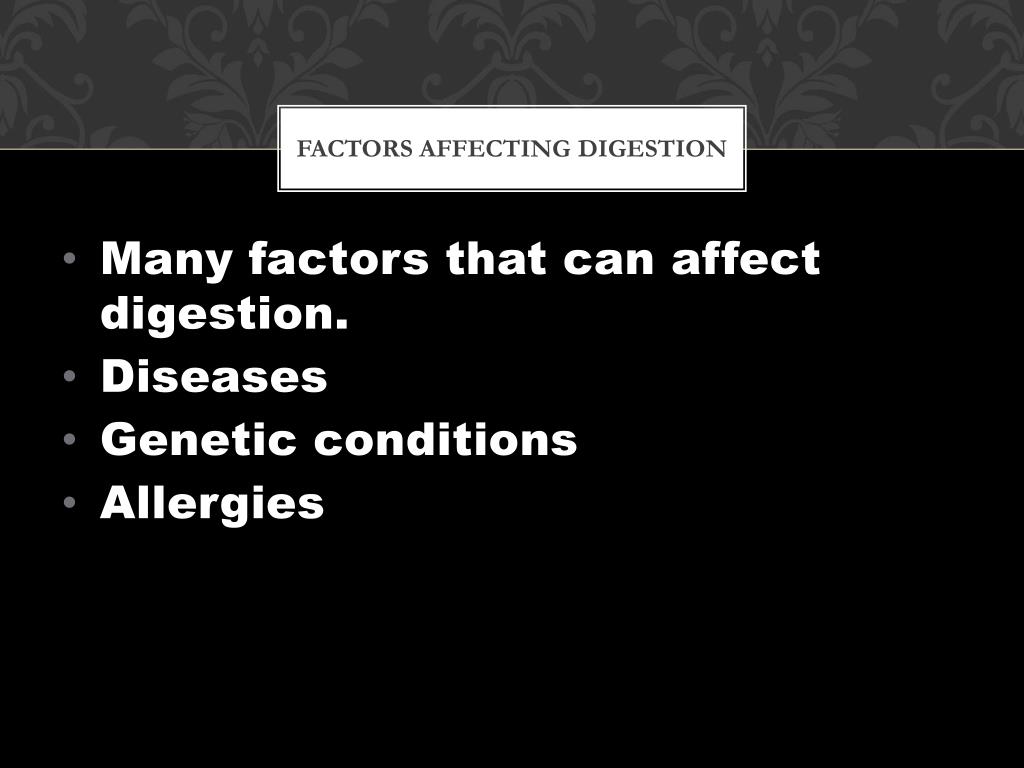Living with constipation can be uncomfortable, frustrating, and even painful at times. It’s a common problem that affects people of all ages, but the good news is that it’s usually manageable with the right knowledge and lifestyle adjustments. In this article, we’ll explore simple secrets to achieving a constipation-free life, drawing from both scientific understanding and practical advice.
Table of Contents
Understanding Constipation
Causes of Constipation
The causes of constipation are varied and can include:
- Dietary Habits: A diet low in fiber is a common cause. Fiber helps to bulk up stools and promotes regular bowel movements. Lack of sufficient water intake can also lead to dehydration, making stools harder and more difficult to pass.
- Lifestyle Factors: Lack of physical activity can slow down the digestive process. Similarly, ignoring the urge to have a bowel movement can lead to constipation over time.
- Medical Conditions: Certain conditions, such as diabetes, hypothyroidism, and irritable bowel syndrome (IBS), can predispose individuals to constipation. Additionally, neurological conditions like Parkinson’s disease and spinal cord injuries can affect the muscles involved in bowel movements.
- Medications: Some medications, including painkillers, antidepressants, and iron supplements, can cause constipation as a side effect.
- Age: The risk of constipation increases with age, due in part to a decrease in physical activity, changes in diet, and the increased use of medications.
- Pregnancy: Hormonal changes and the physical pressure of the uterus on the intestine can lead to constipation during pregnancy.
Symptoms of Constipation
Besides infrequent bowel movements, symptoms of constipation can include:
- Stomach ache and cramps
- Feeling bloated
- Nausea
- Loss of appetite
- Hard or lumpy stools
- Straining during bowel movements

Managing and Preventing Constipation
Effective management and prevention of constipation focus on lifestyle and dietary changes:
- Increase Fiber Intake: Consuming high-fiber foods like fruits, vegetables, whole grains, and legumes can help soften stools and promote regular bowel movements.
- Stay Hydrated: Drinking plenty of water and other fluids helps to keep stools soft and easier to pass.
- Exercise Regularly: Physical activity encourages the movement of food through the digestive system.
- Heed Nature’s Call: Ignoring the urge to go can lead to constipation. It’s important to go when you feel the need.
- Manage Stress: Stress can impact your digestive system and exacerbate constipation. Techniques like meditation, yoga, or regular exercise can help manage stress levels.
The Science of Digestion
The Digestive Process: An Overview
- Mouth: Digestion begins in the mouth, where food is broken down into smaller pieces by chewing, and mixed with saliva. Saliva contains enzymes that start the breakdown of carbohydrates into simpler sugars.
- Esophagus: The chewed food, now called a bolus, travels down the esophagus to the stomach through a series of coordinated muscle contractions known as peristalsis.
- Stomach: In the stomach, food is mixed with gastric juices containing acid and enzymes, further breaking it down into a semi-liquid form known as chyme. The stomach’s acidic environment helps break down proteins and kill potentially harmful bacteria.
- Small Intestine: Chyme then moves into the small intestine, where the majority of nutrient absorption occurs. The small intestine is lined with villi and microvilli, tiny finger-like projections that increase the surface area for absorption. Pancreatic enzymes and bile from the liver aid in digesting fats, proteins, and carbohydrates, allowing nutrients to be absorbed into the bloodstream.
- Large Intestine (Colon): What remains after nutrient absorption in the small intestine passes into the large intestine. Here, water and salts are absorbed, and the waste is transformed into stool. Beneficial bacteria in the colon help break down remaining nutrients and produce certain vitamins.
- Rectum and Anus: The stool is stored in the rectum until it is expelled from the body through the anus, completing the digestive process.

Factors Affecting Digestion
Several factors can influence the efficiency and health of the digestive process:
- Diet: The types of food consumed can greatly impact digestion. A diet rich in fiber supports healthy bowel movements and prevents constipation, while excessive consumption of processed foods can hinder digestion.
- Hydration: Adequate fluid intake is crucial for dissolving nutrients and waste, facilitating their movement through the digestive system.
- Physical Activity: Regular exercise stimulates the muscles of the digestive tract, improving bowel function and reducing the risk of constipation.
- Stress: High levels of stress can negatively affect various parts of the digestive system, leading to issues like stomach ulcers, diarrhea, constipation, and IBS.
- Health Conditions: Certain medical conditions, such as IBS, Crohn’s disease, and gastroparesis, can disrupt normal digestive processes and require specialized management.
Lifestyle Modifications for Prevention
Lifestyle modifications play a crucial role in preventing digestive issues, including constipation, and ensuring overall digestive health. By making certain changes in daily habits, diet, and physical activity, one can significantly reduce the risk of common digestive problems and improve their quality of life. Here are essential lifestyle modifications aimed at enhancing digestive health:
1. Increase Fiber Intake
Fiber is vital for healthy digestion. It helps to keep the digestive system flowing by making stools softer and easier to pass. The recommended daily intake of fiber is about 25 grams for women and 38 grams for men. High-fiber foods include fruits, vegetables, whole grains, legumes, nuts, and seeds.
2. Stay Hydrated
Water is essential for digesting food and preventing constipation. It helps dissolve fats and soluble fiber, allowing these substances to pass through the intestines more easily. Aim for at least 8-10 glasses of water per day, and consider increasing your intake when you consume more fiber.
3. Regular Physical Activity
Exercise helps keep food moving through the digestive system and reduces the time it takes for food to pass through the large intestine, limiting the amount of water absorbed from the stool into the body. Moderate exercise, such as walking, swimming, or cycling, for at least 30 minutes most days of the week, can significantly improve digestive health.
4. Mindful Eating
Eating slowly and being mindful of the foods you eat can improve your digestive health. Chew your food thoroughly to break it down and make it easier for your digestive system to process. This practice also helps prevent overeating, which can lead to bloating, gas, and discomfort.
5. Manage Stress
Chronic stress can negatively affect your digestive system, leading to issues like stomach ulcers, IBS, and constipation. Techniques such as meditation, yoga, deep breathing exercises, and regular physical activity can help manage stress levels.
6. Limit Intake of Irritants
Certain foods and beverages can irritate the digestive system, especially if you’re sensitive to them. Limiting the intake of caffeine, alcohol, spicy foods, and fatty foods can help prevent digestive discomfort.
7. Regular Eating Schedule
Maintaining a regular eating schedule can help regulate your digestive system. Skipping meals or eating irregularly can cause your digestive system to become sluggish, leading to constipation and other digestive issues.
8. Avoid Smoking
Smoking can harm your digestive system in several ways. It increases the risk of digestive disorders, including acid reflux and stomach ulcers. Quitting smoking can significantly improve your digestive health.
By incorporating these lifestyle modifications into your daily routine, you can support and enhance your digestive health. Remember, making small changes gradually is more sustainable and effective in the long term. If you’re experiencing persistent digestive issues, it’s essential to consult with a healthcare provider to rule out any underlying conditions.
Remedies and Solutions
When addressing constipation, a condition characterized by infrequent bowel movements and difficulty passing stools, there are various remedies and solutions that can provide relief. These range from simple dietary adjustments to over-the-counter medications and natural remedies. The goal is to soften the stool and promote regular bowel movements, thereby alleviating discomfort and preventing potential complications.
Dietary Adjustments
- Increase Fiber Intake: Fiber adds bulk to the stool and helps it pass more easily. Foods rich in fiber include fruits (such as berries, apples, and pears), vegetables (like broccoli, leafy greens, and carrots), whole grains (such as oatmeal, brown rice, and whole wheat bread), legumes (like lentils, beans, and chickpeas), and nuts and seeds.
- Stay Hydrated: Drinking plenty of fluids, especially water, helps keep the stool soft and easier to pass. Aim for at least 8 glasses of water a day, or more if you’re physically active or live in a hot climate.
- Limit High-Fat and Processed Foods: Foods high in fat and low in fiber, such as fast food, processed snacks, and some dairy products, can slow down digestion and contribute to constipation.
Exercise and Physical Activity
Regular physical activity can stimulate the muscles in the intestines, helping to move stools through the digestive system more efficiently. Even light exercise, such as walking or yoga, can be beneficial.
Over-the-Counter Solutions
- Fiber Supplements: If dietary fiber intake is insufficient, fiber supplements like psyllium, methylcellulose, or inulin can be helpful.
- Stool Softeners: These medications add moisture to the stool, making it easier to pass. Docusate is a commonly used stool softener.
- Laxatives: There are several types of laxatives, each working in a different way. Bulk-forming laxatives (such as psyllium) act similarly to dietary fiber, osmotic laxatives (like polyethylene glycol) help fluids move through the colon, and stimulant laxatives (such as senna) stimulate the intestinal muscles to help push stool out. Laxatives should be used as a last resort and not for long-term management without consulting a healthcare provider.
Natural Remedies
- Prunes and Prune Juice: Prunes are rich in fiber and contain sorbitol, a natural laxative.
- Aloe Vera: Aloe vera juice can promote moisture in the intestines and has a mild laxative effect.
- Herbal Teas: Certain herbal teas, such as senna, peppermint, and ginger tea, can help stimulate digestion and relieve constipation. However, senna should not be used regularly without consulting a healthcare provider.
When to Seek Medical Attention
If constipation is severe, persistent, or accompanied by other symptoms like abdominal pain, blood in the stool, or unexplained weight loss, it’s important to seek medical advice. These could be signs of a more serious underlying condition.
In summary, a combination of dietary adjustments, increased physical activity, appropriate use of over-the-counter solutions, and natural remedies can effectively manage and prevent constipation for many individuals. However, understanding the underlying cause and consulting with a healthcare provider when necessary is crucial for safe and effective treatment.
When to See a Doctor
Persistent or Severe Constipation
If constipation lasts longer than three weeks, does not respond to home treatment, or is significantly impacting your quality of life, it’s time to see a doctor. Persistent constipation could indicate digestive system disorders, hormonal imbalances, or other health conditions.
Pain and Discomfort
Constipation accompanied by severe abdominal pain, cramping, or discomfort that does not ease after a bowel movement may suggest conditions like bowel obstruction or severe Irritable Bowel Syndrome (IBS). Medical evaluation is necessary to rule out these and other serious conditions.
Blood in Stool
Finding blood in your stool, on toilet paper, or in the toilet bowl can be a sign of hemorrhoids, which are often related to straining during bowel movements, but it can also indicate more serious conditions like colorectal cancer. A healthcare provider can determine the cause.
Unintended Weight Loss
Losing weight without trying, especially if you’re also experiencing constipation, could indicate a metabolic or digestive disorder. It’s important to investigate these symptoms with a professional.
Changes in Bowel Habits
A significant change in your bowel habits, such as a marked decrease in frequency or a consistent difficulty in stool passage, especially if these changes are sudden and persistent, should be evaluated by a doctor.
Rectal Bleeding
Any instance of rectal bleeding should be assessed by a healthcare provider, as this can be a sign of hemorrhoids, fissures, or more serious conditions like inflammatory bowel disease or colorectal cancer.
Use of Laxatives Without Relief
If you’ve been relying on over-the-counter laxatives for relief and constipation persists, it’s time to consult a healthcare provider. Long-term use of laxatives can sometimes worsen constipation or indicate dependency, which requires medical intervention.
Associated Symptoms
If constipation is accompanied by symptoms like nausea, vomiting, fever, or severe abdominal pain, these could be signs of a blockage in the intestines or other urgent medical conditions.
Preventing Recurrence
Maintain a High-Fiber Diet
- Incorporate Plenty of Fiber: Aim to include a variety of high-fiber foods in your diet, such as fruits, vegetables, whole grains, legumes, nuts, and seeds. Fiber helps increase the weight and size of your stool and softens it, making it easier to pass.
- Gradually Increase Fiber Intake: If you’re not used to a high-fiber diet, increase your fiber intake gradually to prevent bloating, gas, and discomfort.
Stay Hydrated
- Drink Plenty of Fluids: Water is essential for digesting food and helps keep the stool soft. Aim for at least 8 glasses of water a day, and consider more if you’re active or live in a hot climate.
- Limit Caffeinated and Alcoholic Beverages: These can lead to dehydration, so balance them with plenty of water.
Exercise Regularly
- Stay Active: Regular physical activity helps stimulate intestinal activity, which can help prevent constipation. Even light exercises, such as walking or yoga, can be beneficial.
- Make Movement a Part of Your Routine: Incorporate physical activity into your daily routine to ensure consistency.
Listen to Your Body
- Heed the Urge to Go: Ignoring the urge to have a bowel movement can lead to constipation. When you feel the need to go, do so.
- Establish a Routine: Try to use the bathroom at the same time each day, especially after meals, to help establish a regular bowel movement pattern.
Manage Stress
- Reduce Stress: High stress levels can impact your digestive system. Techniques like meditation, yoga, deep breathing exercises, or any activity that you find relaxing can help manage stress.
Review Medications
- Check Your Medications: Some medications, including painkillers, antidepressants, and iron supplements, can cause constipation. If you suspect your medication is a factor, discuss alternatives or solutions with your healthcare provider.
Consider Probiotics
- Incorporate Probiotics: Probiotics, found in yogurt and other fermented foods, as well as supplements, can help maintain a healthy balance of gut bacteria and improve digestive health.
Monitor Your Health
- Regular Health Check-ups: Regular visits to your healthcare provider can help identify and treat any underlying conditions that might be contributing to constipation.
Conclusion
Constipation doesn’t have to be a constant struggle. By understanding its causes, making informed lifestyle changes, and knowing when to seek medical advice, you can ease your way out of discomfort and enjoy a healthier, more comfortable life.
FAQs
- How much fiber should I aim to consume daily to prevent constipation?
- Can too much fiber cause constipation?
- Are there any specific exercises that are particularly good for preventing constipation?
- How does hydration impact constipation, and how much should I drink?
- When should I consider over-the-counter laxatives, and are they safe?



MOST COMMENTED
Animal-Based Proteins / Casein Protein / Dietary Protein / High-Protein Diets / Pea Protein / Plant-Based Proteins / Protein / Protein Deficiency / Protein Supplements / Proteins / Whey Protein / Whey Proteins
Pea Proteins: The Best Plant-Based Protein Alternative?
Foot Problem / Foot Health
Revolutionize Your Recovery: Natural Remedies for Plantar Fasciitis – Fresh Home Keepers
Dietary Supplement
Revitalize Your Health: The Magic of Red Yeast Rice Capsules
Exercises and Footwear Tips for Hammertoe Relief / Foot care / Foot Health / Foot Pain / Foot Problem / Hammertoes
Unlock Effective Exercises and Footwear Tips for Hammertoe Relief
Hammertoes / Foot Health / Foot Pain / Foot Problem
Unlock Relief: Essential Guide to Hammertoes Causes, Symptoms, and Treatments
Moringa Powder / Moringa Supplement
Green Superfood: The Ultimate Guide to Moringa Leaf Powder
Moringa Powder
Supercharge Your Diet: The Incredible Impact of Moringa Leaf Powder
Animal-Based Proteins / Casein Protein / Dietary Protein / High-Protein Diets / Pea Protein / Plant-Based Proteins / Protein / Protein Deficiency / Protein Supplements / Proteins / Whey Protein / Whey Proteins
Is Protein Powder Safe for Teenagers and Children?
Animal-Based Proteins / Casein Protein / Dietary Protein / High-Protein Diets / Pea Protein / Plant-Based Proteins / Protein / Protein Deficiency / Protein Supplements / Proteins / Whey Protein / Whey Proteins
Unlock the Power of Proteins for Optimal Gut Health
Shin Splints / Foot Health / Foot Problem
Unlock Relief: Essential Guide to Overcoming Shin Splints – Discover Healing Strategies